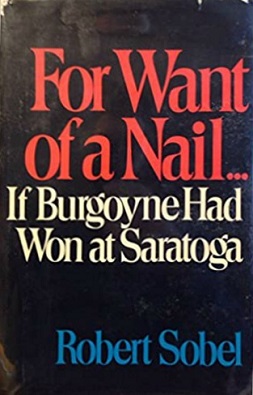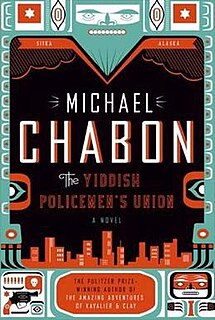 W
WThe Sidewise Awards for Alternate History were established in 1995 to recognize the best alternative history stories and novels of the year.
 W
W1942 is an alternate history novel written by Robert Conroy. It was first published, as an e- book, by Ballantine Books on February 24, 2009, with a hardcover edition following from the same publisher in March 2009. The novel won the 2009 Sidewise Award for Alternate History.
 W
WAsh: A Secret History is a fantasy novel by British author Mary Gentle, published in 2000. Set in the 15th century, the novel blends elements of fantasy, alternate history, and secret history. In the United States, it was published in four paperback volumes: A Secret History, Carthage Ascendant, Wild Machines, and Lost Burgundy.
 W
WThe Calculating Stars is a science fiction novel by American writer Mary Robinette Kowal. The book was published by Tor Books on July 3, 2018. It is the first book in the "Lady Astronaut" series and is a prequel to the 2012 short story "The Lady Astronaut of Mars".
 W
WThe Children's War is a 2001 alternate history novel by J.N. Stroyar. It was followed by the sequel A Change of Regime. The book was the long form winner of the Sidewise Award for Alternate History in 2001.
 W
WCollaborator is an alternate history novel by Murray Davies, published as a hardcover on 19 September 2003 and released in paperback in the United Kingdom and the United States in September 2004. The novel is set in a Nazi-occupied Great Britain in 1940 and 1941. It chronicles life during this period primarily through the experiences of Nick Penny, the collaborator of the novel's title.
 W
WDominion is a 2012 alternate history novel by British author C. J. Sansom. It is a political thriller set in the early 1950s against the backdrop of a Britain that has become a satellite state of Nazi Germany. The point of divergence from actual history is that Lord Halifax, rather than Winston Churchill, succeeded Neville Chamberlain as Prime Minister in May 1940.
 W
WFor Want of a Nail: If Burgoyne Had Won at Saratoga is an alternate history novel published in 1973 by the American business historian Robert Sobel. The novel depicts an alternate world where the American Revolution was unsuccessful. Although it is fiction, the novel takes the form of a work of nonfiction, specifically an undergraduate-level history of North America from 1763 to 1971. The fictional history includes a full scholarly apparatus, including a bibliography of 475 works and 860 footnotes citing imaginary books and articles; three appendices listing the leaders of the Confederation of North America, the United States of Mexico, and Kramer Associates; an index; a contemporary map of the alternate North America; and a preface thanking imaginary people for their assistance with the book. The book also includes a critique of itself by Professor Frank Dana, an imaginary Mexican historian with two books listed in the bibliography.
 W
WHow Few Remain is a 1997 alternate history novel by Harry Turtledove. It is the first part of the Southern Victory saga, which depicts a world in which the Confederate States of America won the American Civil War. It is similar to his earlier novel The Guns of the South, but unlike the latter, it is a purely historical novel with no fantastical or science fiction elements. The book received the Sidewise Award for Alternate History in 1997, and was also nominated for the Nebula Award for Best Novel in 1998. It covers the Southern Victory Series period of history from 1862 and from 1881 to 1882.
 W
WMaking History (1996) is the third novel by Stephen Fry. The plot involves the creation of an alternative historical time line, one where Adolf Hitler never existed. While most of the book is written in standard prose, a couple of chapters are written in the format of a screenplay. The book won the Sidewise Award for Alternate History.
 W
WThe Merchant Princes is a science fantasy and alternate history series by British writer Charles Stross. There are currently eight novels in the series, with another forthcoming. In the series, there exists a number of parallel worlds all of which are on the same geographical Earth, but with different societies at different points of development. Members of a certain bloodline can travel between these worlds along with their immediate possessions. The series largely follows Miriam Beckstein, a technology journalist raised in a familiar "normal" Earth, who discovers she was born in a parallel world and is a member of this bloodline. She quickly becomes entangled in political maneuvering and assassination plots with her estranged family. Miriam uses modern technology and investigative journalism to attempt to stay a step ahead.
 W
WMinistry of Space is a three-part alternate history mini-series written by Warren Ellis, published by American company Image Comics in 2001-2004. The book's art is by Chris Weston, and depicts retro technology in "British" style.
 W
WThe Plot Against America is a novel by Philip Roth published in 2004. It is an alternative history in which Franklin D. Roosevelt is defeated in the presidential election of 1940 by Charles Lindbergh. The novel follows the fortunes of the Roth family during the Lindbergh presidency, as antisemitism becomes more accepted in American life and Jewish-American families like the Roths are persecuted on various levels. The narrator and central character in the novel is the young Philip, and the care with which his confusion and terror are rendered makes the novel as much about the mysteries of growing up as about American politics. Roth based his novel on the isolationist ideas espoused by Lindbergh in real life as a spokesman for the America First Committee, and on his own experiences growing up in Newark, New Jersey. The novel depicts the Weequahic section of Newark which includes Weequahic High School from which Roth graduated.
 W
WResurrection Day is a novel written by Brendan DuBois in 1999. It is an alternate history where the Cuban Missile Crisis escalated to a full-scale war, the Soviet Union is devastated, and the United States has been reduced to a third-rate power, relying on the United Kingdom for aid. It won the Sidewise Award for Alternate History that year.
 W
WRuled Britannia is an alternate history novel by Harry Turtledove, first published in hardcover by New American Library in 2002.
 W
WUnderground Airlines is a 2016 novel by Ben Winters which is set in a contemporary alternate-history United States where the American Civil War never occurred because Abraham Lincoln was assassinated prior to his 1861 inauguration and a version of the Crittenden Compromise was adopted instead. As a result, slavery has remained legal in the "Hard Four" : Alabama, Louisiana, Mississippi and a unified Carolina. Its name evokes the Underground Railroad in relations to its setting. The novel attracted praise for exploring racism through the alternate-history mechanism.
 W
WVoyage is a 1996 hard science fiction novel by British author Stephen Baxter. The book depicts a crewed mission to Mars as it might have been in another timeline, one where John F. Kennedy survived the assassination attempt on him on 22 November 1963. Voyage won a Sidewise Award for Alternate History, and was nominated for the Arthur C. Clarke Award in 1997.
 W
WThe Yiddish Policemen's Union is a 2007 novel by American author Michael Chabon. The novel is a detective story set in an alternative history version of the present day, based on the premise that during World War II, a temporary settlement for Jewish refugees was established in Sitka, Alaska, in 1941, and that the fledgling State of Israel was destroyed in 1948. The novel is set in Sitka, which it depicts as a large, Yiddish-speaking metropolis.